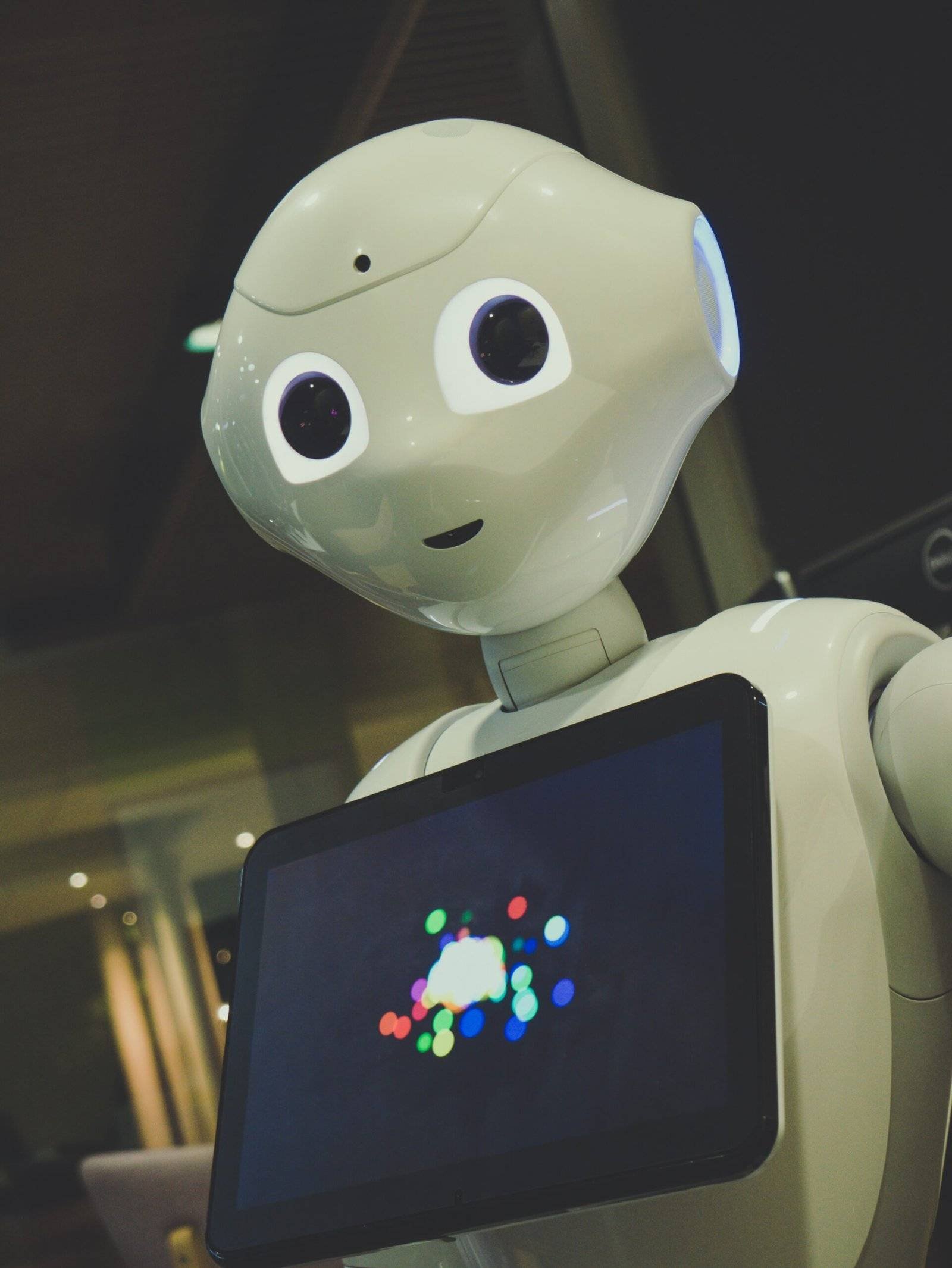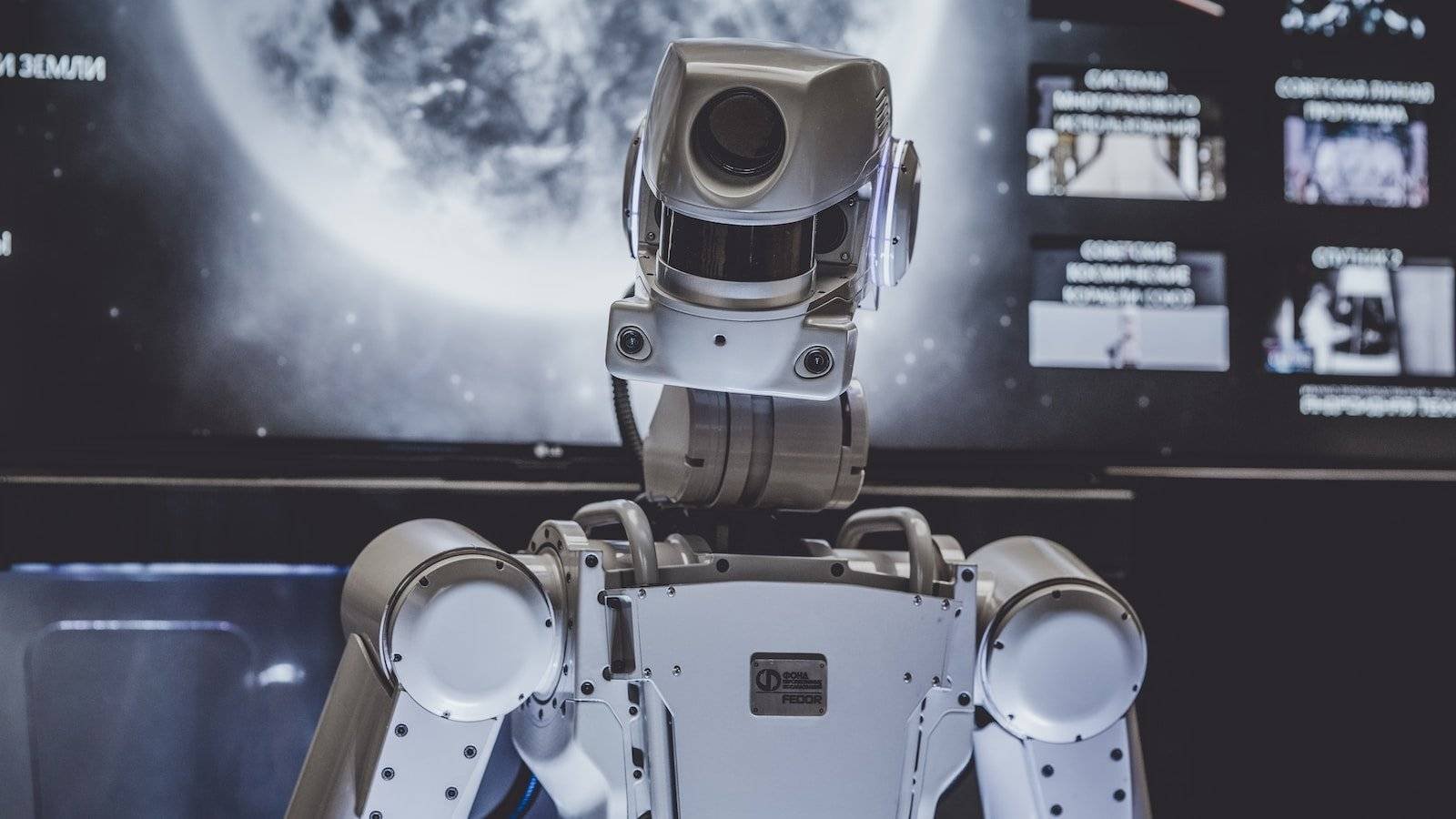Introduction to Adaptive AI
Envision a scenario where machines possess the ability to learn, adapt, and instantly cater to our requirements. Picture a reality where technology not only comprehends our choices but also predicts them accurately. Step into the age of Adaptive AI – a revolutionary concept that’s reshaping industries on a global scale.
Within this article, we’ll take a comprehensive plunge into the captivating realm of Adaptive AI. We’ll deeply delve into its fundamental principles, explore the underlying technologies, analyze its practical applications in the real world, and even contemplate the ethical considerations it brings about.
So, brace yourself as we set out on a thrilling expedition through the evolution and influence of Adaptive AI. Prepare to witness firsthand how this state-of-the-art technology is revolutionizing workplaces and redefining the path our future treads upon!
Core Principles of Adaptive Systems

Adaptive systems stand as pioneers in technological advancement, completely transforming industries and elevating user interactions. These systems function based on fundamental principles that enable them to consistently learn, adjust, and enhance their efficiency. Let’s delve into a few essential principles that form the foundation of adaptive systems.
1. Uninterrupted Learning: The concept behind Adaptive AI hinges on perpetual learning. The system collects data from diverse sources and employs machine learning algorithms to scrutinize and comprehend this data. Subsequently, it adapts its actions according to these revelations, facilitating its gradual development over time.
2. Feedback Loops: Feedback loops are an integral part of adaptive systems. They enable the system to receive feedback from users or other external sources, which helps in refining its responses and actions. By incorporating feedback loops, adaptive AI can constantly fine-tune its decision-making process.
3. Context Awareness: Adaptation requires a deep understanding of context. Adaptive AI focuses on capturing not only explicit user inputs but also implicit cues such as tone, sentiment, and context surrounding the interaction to provide more personalized and relevant responses.
4. Flexibility: An adaptive system needs to be flexible enough to handle diverse scenarios effectively. It should be able to adjust its approach based on changing circumstances or new information without compromising accuracy or efficiency.
5. Improvement Over Time: An essential principle of adaptive AI is improvement over time; it continually refines itself through ongoing training with new data sets while leveraging past knowledge gained from previous interactions.
These core principles lay the foundation for building effective adaptive systems that can serve a wide range of applications across different domains like healthcare, finance, customer service,
and more.
Technologies Behind Adaptive AI
The realm of Artificial Intelligence (AI) has witnessed extraordinary progress in recent times, with a particular focus on Adaptive AI emerging as a noteworthy area. However, what precisely are the technologies that drive this groundbreaking notion?
Machine Learning lies at the heart of adaptive systems. It involves training algorithms to learn from data and make predictions or decisions without being explicitly programmed. Through continuous learning, these algorithms can adapt and improve their performance over time.
Deep Learning is another crucial technology used in adaptive AI. Inspired by the human brain’s neural networks, deep learning models process vast amounts of data through multiple layers of interconnected nodes to extract meaningful patterns and insights.
Reinforcement Learning also assumes a pivotal role in constructing adaptive AI systems. It empowers machines to formulate decisions by drawing from feedback garnered through trial and error within their surroundings. This capability enables them to refine their actions, ultimately striving for the attainment of desired results.
Natural Language Processing (NLP) is indispensable in crafting intelligent conversational interfaces. By understanding human language input and generating appropriate responses, NLP helps adaptive AI systems interact with users effectively.
Computer Vision technologies enable machines to perceive and understand visual information just like humans do. By analyzing images or videos, adaptive AI can recognize objects, detect patterns, and make informed decisions based on visual inputs.
Big Data infrastructure provides the necessary foundation for handling massive volumes of data generated by adaptive AI systems during training and operation phases. This includes storage solutions, distributed computing frameworks like Hadoop or Spark, as well as scalable processing engines for efficient data analysis.
These various technologies work synergistically together to power up Adaptive AI applications across different domains such as healthcare diagnostics, personalized marketing campaigns, autonomous vehicles navigation systems – just to name a few!
Incorporating these cutting-edge technologies into the development of Adaptive AI not only enhances its capabilities but also opens up limitless possibilities for solving complex problems in diverse industries. The future certainly looks promising!
Real-World Applications of Adaptive AI
Adaptive AI has permeated diverse industries and domains, fundamentally reshaping our approach to intricate challenges and activities. Let’s delve into a few practical instances where adaptive AI is leaving a substantial imprint.
Within the healthcare realm, adaptive AI systems are harnessed to scrutinize medical data and facilitate more precise disease diagnoses. These systems draw upon a constant influx of knowledge from patient records, research documents, and clinical experiments, enabling them to furnish healthcare experts with invaluable insights. The outcome is an enhancement in patient results and well-being.
Another area where adaptive AI shines is in personalized marketing. By analyzing vast amounts of customer data in real-time, companies can tailor their marketing strategies based on individual preferences and behavior patterns. This leads to highly targeted campaigns that resonate with customers on a deeper level.
The field of transportation has also been transformed by adaptive AI technologies. Self-driving cars rely heavily on adaptive algorithms that learn from sensor data collected during driving scenarios. These algorithms continuously adapt their decision-making processes based on environmental changes, ensuring safer and more efficient autonomous vehicles.
Education is another domain benefiting from the power of adaptive AI. With personalized e-learning platforms powered by machine learning algorithms, students receive customized lessons tailored to their unique strengths and weaknesses. This allows for a more engaging learning experience while maximizing knowledge retention.
In finance, adaptive AI plays a crucial role in fraud detection systems. By analyzing large volumes of financial transactions in real-time, these systems can quickly identify suspicious activities or anomalies that may indicate fraudulent behavior. This helps prevent monetary losses and protects both individuals and businesses alike.
These instances merely scratch the surface, illuminating the transformative potential of adaptive AI across a multitude of global industries. As technology propels forward at an unparalleled pace, we can anticipate a plethora of even more ingenious applications for this potent technology in the times ahead.
Adaptive AI in the Workplace
The infusion of adaptive AI into work environments has ushered in a revolutionary shift in business operations. Possessing the capacity to learn and adjust, this cutting-edge technology introduces an elevated echelon of efficiency and productivity across diverse industries.
One area where adaptive AI shines is in customer service. Chatbots powered by this intelligent system can now provide personalized responses based on individual preferences and past interactions. Gone are the days of generic replies that leave customers frustrated. Adaptive AI ensures that each interaction feels tailored, enhancing customer satisfaction.
In addition to customer service, adaptive AI also plays a crucial role in employee training and development. By analyzing data from various sources such as performance metrics and learning patterns, this technology can create personalized training programs for individuals. This approach allows employees to acquire skills at their own pace while addressing their specific areas for improvement.
Moreover, adaptive AI assists in streamlining complex decision-making processes within organizations. It analyzes vast amounts of data quickly and accurately, providing valuable insights that guide strategic planning and resource allocation.
Despite these benefits, it’s important to consider ethical implications when implementing adaptive AI in the workplace. Issues related to privacy, bias, and transparency need careful examination to ensure fair treatment of both employees and customers.
As we look towards the future, there is no doubt that adaptive AI will continue evolving alongside advancements in machine learning algorithms. Its impact on workplaces will only grow stronger as businesses recognize its transformative potential.
From improving customer experiences to optimizing operations, adaptive AI holds immense promise for enhancing productivity across industries—ushering us into an era where work becomes more efficient than ever before.
Ethical Considerations of Adaptive AI
As the domain of adaptive-AI continues its progression and refinement, it becomes imperative for us to confront the ethical deliberations that accompany this technology. While adaptive AI holds immense promise in enhancing efficiency and tailoring experiences, it also beckons significant inquiries that demand our attention.
One major concern is privacy. With adaptive systems gathering vast amounts of data about individuals, there is a risk of misuse or unauthorized access to sensitive information. Striking the right balance between personalized experiences and protecting user privacy will be crucial in ensuring the responsible use of adaptive AI.
Another ethical consideration revolves around bias. Since adaptive-AI systems learn from historical data, they have the potential to perpetuate existing biases present in society. It is essential for developers and designers to actively work towards mitigating bias by regularly monitoring and updating these systems.
Transparency is another critical aspect when considering ethics in adaptive AI. Users should have a clear understanding of how their data is being collected, utilized, and shared by these systems. Implementing transparent practices can help build trust between users and organizations deploying adaptive AI technologies.
Furthermore, accountability must also be addressed when it comes to adapting AI algorithms. Who should be held responsible if an algorithm makes biased decisions or causes harm? Developing frameworks for accountability can help ensure that any negative consequences are appropriately addressed.
There are concerns regarding job displacement as a result of increased automation through adaptive-AI technologies. As certain tasks become automated, many worry about job losses across various industries. Finding ways to retrain workers or create new employment opportunities will be key in managing this transition effectively.
In conclusion,
While there are significant benefits offered by adaptive AI technologies, including improved efficiency and personalized experiences; we must carefully consider their ethical implications as well.
By addressing issues such as privacy protection, bias mitigation, transparency, accountability,and employment impacts; we can harness the power of this evolving field while upholding our ethical responsibilities.
To fully realize the potential benefits while mitigating the risks, it is crucial that we have ongoing discussions and establish ethical
Future Outlook for Adaptive AI
The horizon of adaptive AI brims with boundless prospects and untapped potential. As technological advancement maintains its rapid tempo, the maturation of adaptive systems is poised to assume even greater sophistication and impact.
Within the domain of healthcare, adaptive AI holds exceptional promise. Drawing insights from electronic health records, wearable devices, and genetic data, these systems could assist physicians in rendering more precise diagnoses and personalized treatment strategies. Such advancements could revolutionize healthcare delivery and yield improved patient outcomes.
The landscape of education also stands to benefit from the prowess of adaptive AI. Already, adaptive learning platforms are causing ripples by curating educational content in accordance with individual students’ needs and progress. Envisioning the future, we anticipate a world where each student gains access to customized instruction that optimizes their learning potential.
Furthermore, adaptive AI casts a substantial influence on businesses spanning various sectors. From refining supply chains to enhancing customer interactions, adaptive systems contribute valuable insights and recommendations that propel operational efficiency and confer competitive edge.
Nevertheless, akin to any nascent technology, ethical dimensions warrant meticulous consideration. As reliance on autonomous algorithms intensifies, transparency, fairness, privacy safeguarding, and accountability emerge as pivotal requisites in the utilization of adaptive AI systems.
In summation, it’s evident that adaptive AI has traversed a substantial journey from its inception. Proficient in learning from experience and perpetually adapting to shifting circumstances, this technology holds monumental capacity to reshape an array of industries. The pivotal determinant rests in judiciously harnessing its capabilities while concurrently addressing ethical apprehensions.
As the evolution of artificial intelligence continues its course toward heightened adaptability, it becomes paramount not only to focus on the capabilities it offers but also on the alignment of these capabilities with our societal values.
Striking the harmonious equilibrium between innovation and ethics is essential. Through such equilibrium, we can lay the foundation for an inclusive future where human ingenuity synergizes with intelligent machinery—a future where adaptive AI stands as a propulsive agent of positive transformation.






